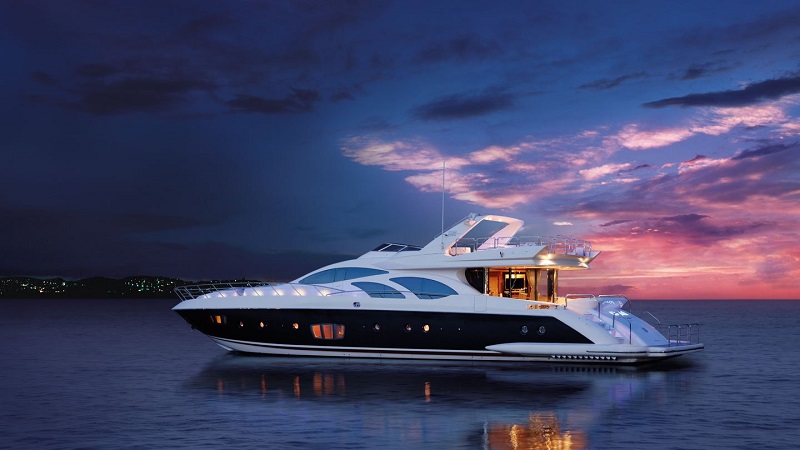Did you know that you can get free accommodation and transportation by volunteering on boats around the world? You can also get paid jobs on anything from small sailboats to mega-yachts to cruise ships. This article will show you how.
Reader Question:
I’ve heard about travellers working and volunteering on boats around the world. How do I get those gigs, and what can I expect? -Ricky
There’s an entire world of accommodation, travel, and income opportunities on the water. I sailed for three months throughout the Caribbean on five boats spanning three countries, without paying a dollar for accommodation, and in some cases I earned an additional income.
What I discovered in those three months is that the marine community is very small; once you break in (and depending on your skills) you can find all kinds of opportunities. It is a lifestyle unto itself.
Working on Boats: Types of Work/Boats
There are four main types of work/lifestyles and boats you can find in the marine community:
Volunteering for Free Passage
Private sailboat owners often need an extra set of hands on deck to help with anything from sailing and night watches, to maintenance and upkeep, to simply providing good company. In exchange for your help, you get free passage. You’ll likely be asked to chip in for shared meals and operational expenses like petrol and water, often averaging $10-25/day. Sailing experience isn’t mandatory, but certainly preferred.
Note: Remember that you’re staying in somebody’s home – and a very small one at that. Not only should you communicate with the captain prior to arriving to ensure there’s a good personality fit, but also be adaptable, and willing to pitch in wherever necessary with communal chores.
When I started volunteering on boats, I didn’t have any sailing experience, but found a captain who was willing to teach me, in exchange for my helping him with his video business. It was a beneficial and enjoyable work exchange, and a great opportunity to learn the ropes (literally and figuratively).
Working on Charter Boats
Some sailboat owners make ends meet by opening up their floating home to charter guests. If the charter is all-inclusive and fully catered, then the captain might need a host/hostess/cook. This person is responsible for taking care of guest needs, including meal planning and shopping, cooking, cabin preparation, and cleaning.
Depending on the charter, meals can be multi-course extravaganzas with appetizer platters and cocktails, or just a casual homestyle dining affair. It’s always good to clarify the charter’s exact needs to ensure you can fill them before you’re all stuck on a boat together in unfavourable circumstances and realize you’re in over your head (so to speak).
I had a chance to hostess a small informal charter in the Caribbean. I enjoyed this experience, which I found through word of mouth (the sailing community is very small, and once you’re on one boat, it’s easy to meet other captains). When I wasn’t cooking or keeping the place tidy, I was swimming and snorkeling with the guests on a different island each day.
Working on Mega-Yachts
Working on mega-yachts is a lifestyle, but not just for the rich and famous! You may be living in the lap of luxury on a mega-yacht, but you’ll pay for it with long working hours and catering to rich people.
Unless you’re being hired for a boat-specific skill (like captain or engineer), work on mega-yachts is generally easy but onerous. It’s comparable to working for a hotel, with a lot of cleaning, polishing, and pandering to guests’ needs. The hours are often long, and from what I’ve heard, it can be a tough slog if you find yourself on the wrong boat (as with any job, but exaggerated due to the restricted living space).
But the money can be good, and if you are passionate about the nautical life you’ll enjoy this lifestyle. I’ve met people who love working on yachts, although they’ll admit sometimes it takes a few boats to find the right fit.
Working on Cruise Ships
As with mega-yachts, cruise ship jobs entail a lot of work, and you are basically owned by the boat. You’ll save lots of money since your accommodation and expenses are covered in addition to your salary, but during your contract, don’t expect much freedom (or personal space). Having said that, most cruise ship contracts pay for your flight home after your contract is complete, and before the next contract begins 6-8 weeks later. If you make a lifestyle out of working on cruise ships, this system will afford you about three months of vacation time per year.
Cruise ships are like floating cities, so the job pool is huge; from entertainment to maintenance staff, shop keepers, kitchen and serving staff, cleaning, a variety of technical positions, and more.
How to Find Volunteer/Work Placements on Boats
When I started sailing, I had no idea that I’d live on five different boats in three months. Once you know one captain, you’ll have the opportunity to meet others and move from boat to boat according to your travel itinerary or personal preferences. The trick is finding your first gig.
Finding Sailboats for Free Passage and Charters
Here are some (mostly free) websites where captains/boat owners and passengers/potential employees alike can connect and determine if there’s a fit for sailing together:
- Find a Crew
- Desperate Sailors (with a section for skilled freelancers/tradesmen to advertise their skills for paid work)
- Crew Seekers
Again, remember that these gigs entail living in somebody’s (very small) home. If you’re interested in getting free passage on a boat, read this article written by a boat owner about how to approach these sorts of jobs and increase your chances of being invited on a boat.
Finding Jobs on Mega-Yachts
Do a simple online search for “how to get a job on a mega-yacht,” and you’ll get pages of answers, including sites like these:
Finding Jobs on Cruise Ships
Unless you’re in a niche position (such as being a performer) that uses agencies to hire, you usually need to apply directly to the cruise line of your choice. Here are the employment pages for some of the major cruise lines:
- Carnival Cruise Lines
- Costa Cruises
- Disney Cruise Line
- Princess
- Silver Sea
- How to Work on a Cruise Ship
Case Study: Working on Cruise Ships
Earl Baron of WanderingEarl.com has been traveling full-time for 14 years. He has worked, lived, traveled, and volunteered in over 85 countries, including teaching English in Asia, and working on cruise ships.
Over a period of nine years, Earl spent five of them working on cruise ships as a tour manager, overseeing the department that organizes tours for cruise ship passengers at ports of call. To balance out the long working hours, he would work a contract or two, then take off for a year or so of travel before returning for another contract.
When asked how he got into the cruise ship life, Earl said “Another traveler I met told me about working on board cruise ships and so I simply applied, sending my resume to a contact person at a major cruise line whose name I had been given. I was called in for an interview and offered a job. Once I had my first cruise line under my belt, with a good performance evaluation, it was easy to take some time off to travel and then contact another cruise line and get hired. Once you have some experience, other cruise lines are eager to hire you since it’s difficult to find crew members who already have ship experience and who are familiar with life at sea.”
Challenges
Life at sea on cruise ships can be difficult for some people. “You work every day during your contract (although it’s not as bad as that sounds given the environment), you’re away from home for at least four or five months at a time, and you must live and work in very close proximity with the same group of people. Some people thrive in this kind of situation but for some, being in this strange, isolated world can be quite challenging.” Privacy is also sacred; unless you’re a high-ranking officer or department head you’ll share a cabin with at least one other crew member.
Opportunities
For Earl, the opportunities outweighed the challenges. He extols the ability to get a taste of life at various ports of call, network with people all over the world (both passengers and crew members), have fun, and save a lot of money. “As an added bonus, the cruise line pays for your flights to/from the ship and you have around two months of vacation in between contracts.” The money is pretty good too; “for a normal hotel position in the tour office or front office or entertainment department, you can generally expect to earn between $1500 – $4000 USD per month. And you have very few expenses during your contract which allows you to save almost all of the money you earn.”
Getting Cruise Ship Jobs as a Couple
Although it’s not impossible to work on cruise ships as a couple, finding positions on the same ship is challenging. Each member of the couple needs to apply for jobs in different departments, and it becomes a scheduling nightmare for larger cruise lines. “It is much easier when applying to the smaller cruise lines that only have a few ships because naturally, it’s less difficult for them to schedule both people together.”
Getting Hired
Getting jobs on cruise ships is about finesse. Earl advises to stay away from hiring agencies that charge fees. “Instead, figure out how to apply directly to the cruise line or through their official hiring partners as getting your resume directly into the hands of the HR department is key. However, keep in mind that every cruise line has different application processes for each department and often, for each nationality.”
Although you can dig around online to find out how to break into this industry, Earl makes it easy with his popular eGuide How to Work on a Cruise Ship, which provides step-by-step instructions on how to apply to over 18 major cruise lines.
Interested in Working Abroad?
Working on boats is just one of many ways to make a living while traveling the world. The newly released Working on the Road: The Unconventional Guide to Full-Time Freedom profiles all kinds of careers (both online and “on-the-ground”), and interviews dozens of people who have found a way to travel and live around the world while making a living. You’ll get all the tools you need to embark on the lifestyle yourself, along with realistic experiential advice.
Check it out; for a limited time, you can get a special introductory price and save up to $50.
Dear Nora, working on boats, Working on the Road









